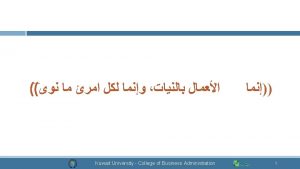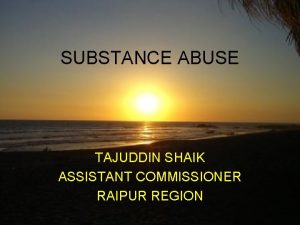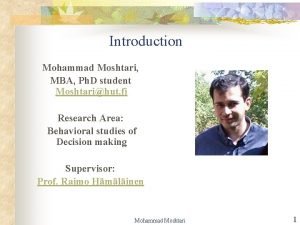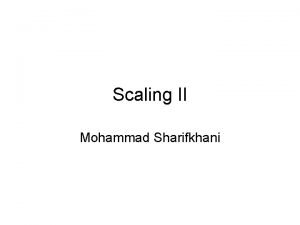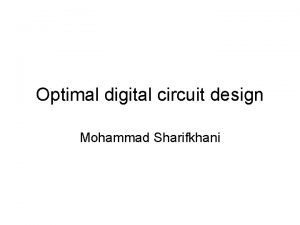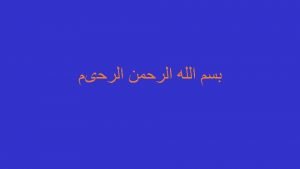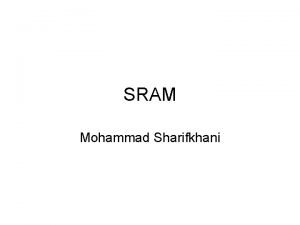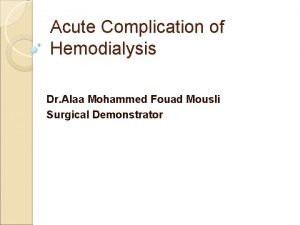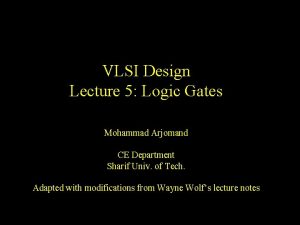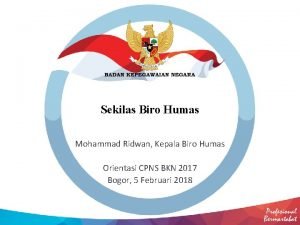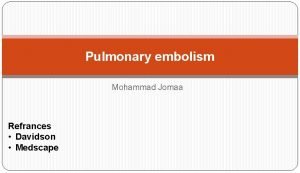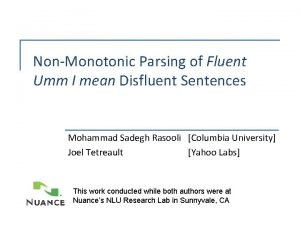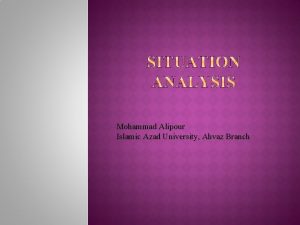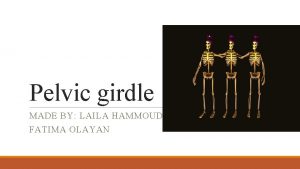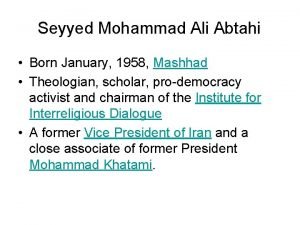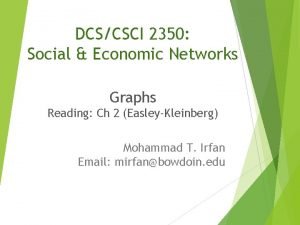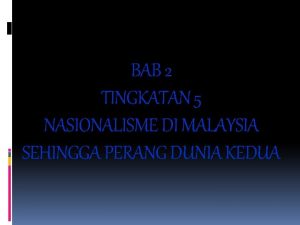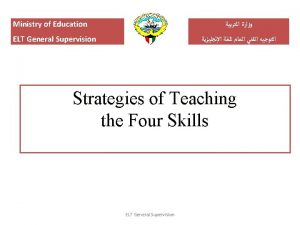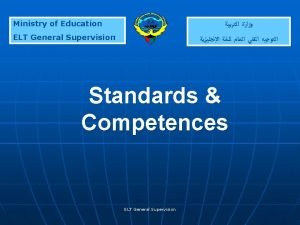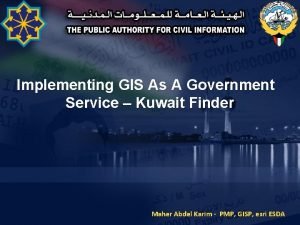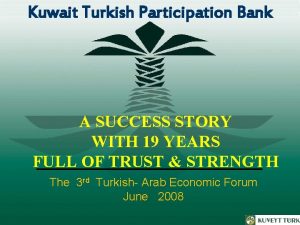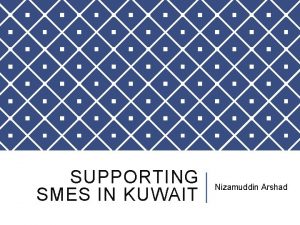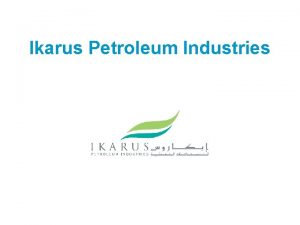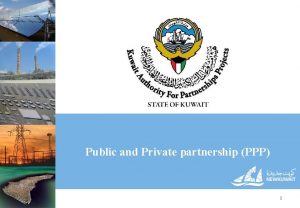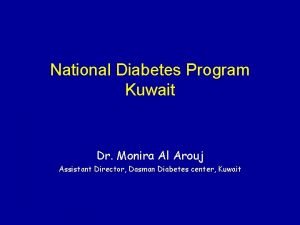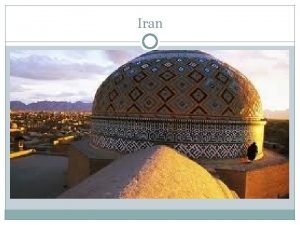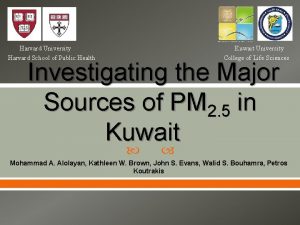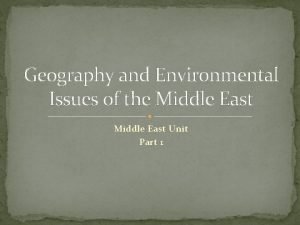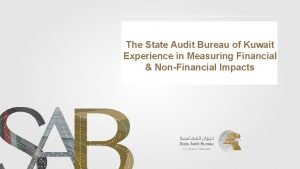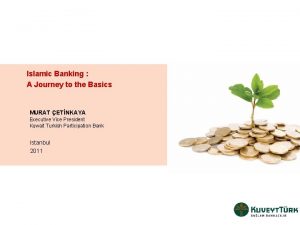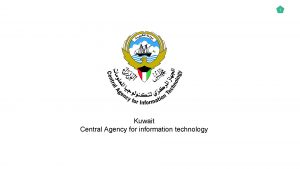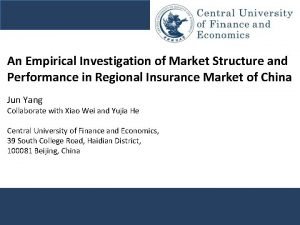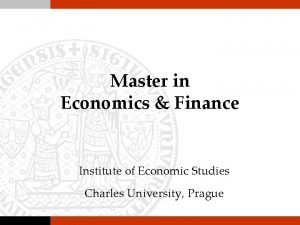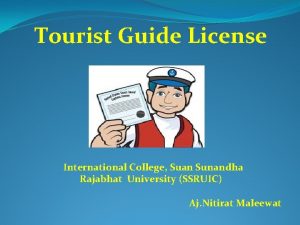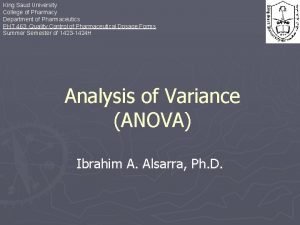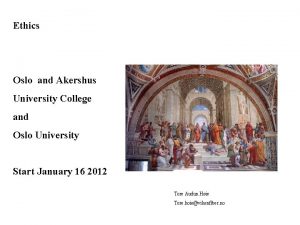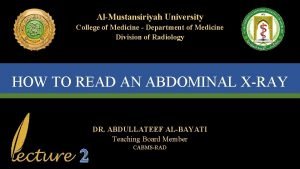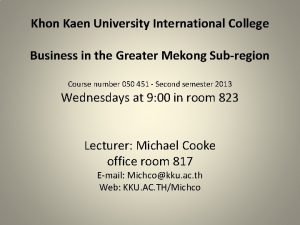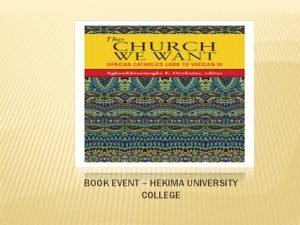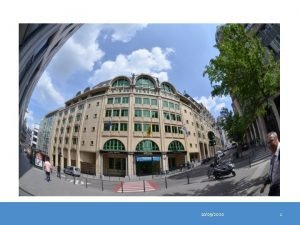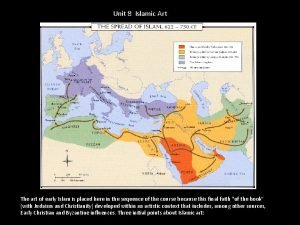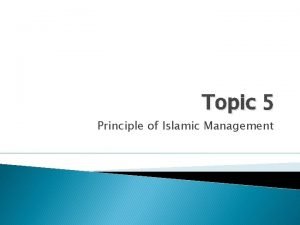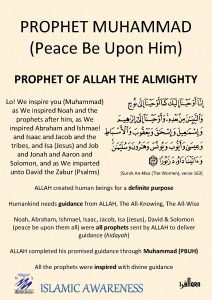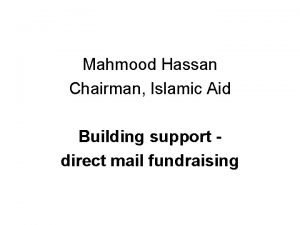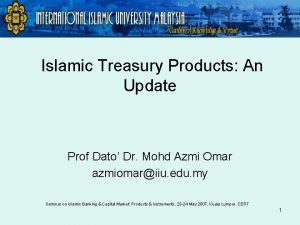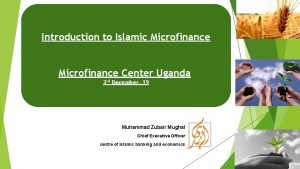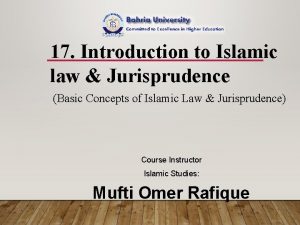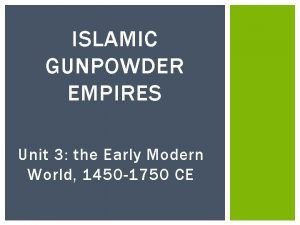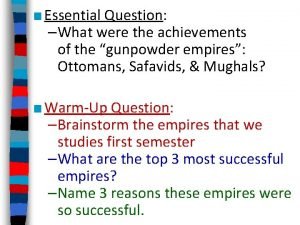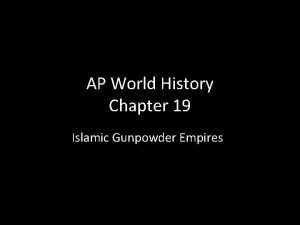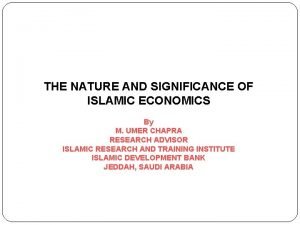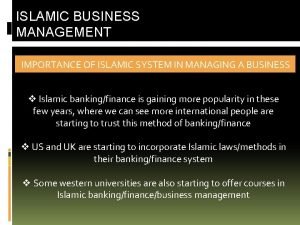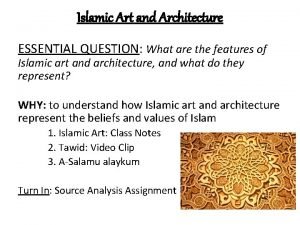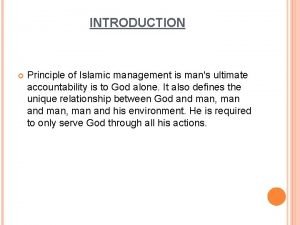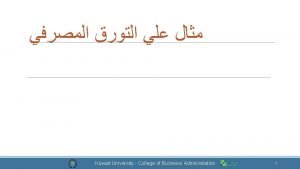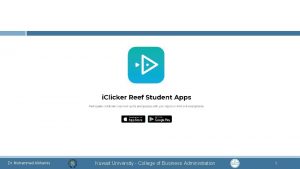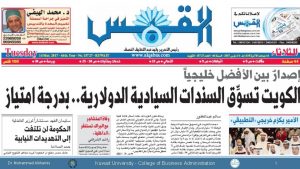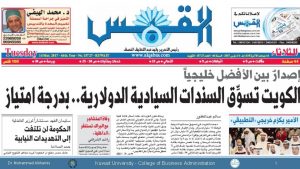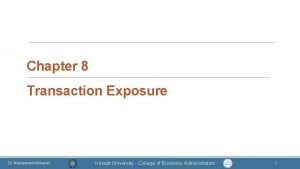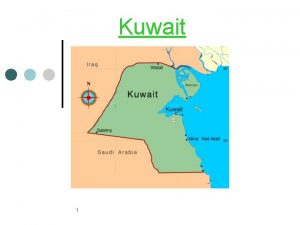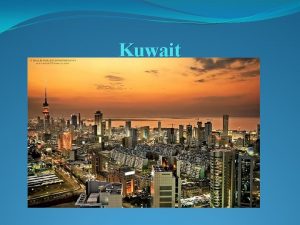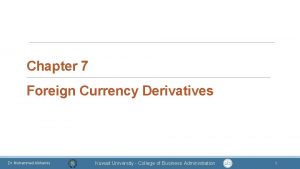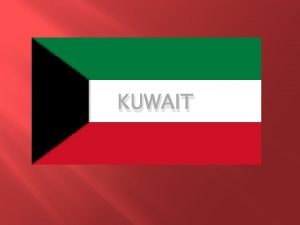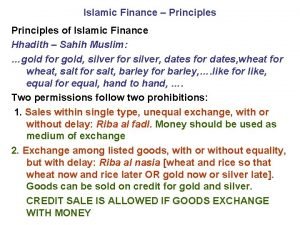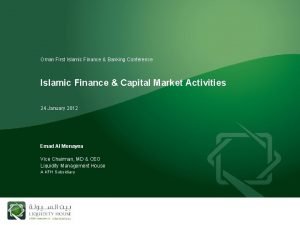Islamic Finance Dr Mohammad Alkhamis Kuwait University College






























![،[3: ﺍ ﻳ ]ﺍﻟﻤﺎﺋﺪﺓ Kuwait University - College of Business Administration 31 ،[3: ﺍ ﻳ ]ﺍﻟﻤﺎﺋﺪﺓ Kuwait University - College of Business Administration 31](https://slidetodoc.com/presentation_image_h2/615c8a8dd998f9c17e1dccc2ec3dcf79/image-31.jpg)













































































































- Slides: 140


Islamic Finance? ﺍﻹﺳﻼﻣﻲ؟ Dr. Mohammad Alkhamis ﺍﻟﺘﻤﻮﻳﻞ Kuwait University - College of Business Administration 2

1. Theoretical answer ﺭﺩ ﻧﻈﺮﻱ 2. Applied, Operation & Practical answer ﺭﺩ ﻣﻦ ﺍﻟﻮﺍﻗﻊ ﺍﻟﻌﻤﻠﻲ ﻭﺍﻟﺘﻄﺒﻴﻘﻲ Kuwait University - College of Business Administration 3

Dr. Mohammad Alkhamis Kuwait University - College of Business Administration 4

Dr. Mohammad Alkhamis Kuwait University - College of Business Administration 5

Dr. Mohammad Alkhamis Kuwait University - College of Business Administration 6

Dr. Mohammad Alkhamis Kuwait University - College of Business Administration 7

Dr. Mohammad Alkhamis Kuwait University - College of Business Administration 8

Dr. Mohammad Alkhamis Kuwait University - College of Business Administration 9

Dr. Mohammad Alkhamis Kuwait University - College of Business Administration 10

Dr. Mohammad Alkhamis Kuwait University - College of Business Administration 11

Dr. Mohammad Alkhamis Kuwait University - College of Business Administration 12

Dr. Mohammad Alkhamis Kuwait University - College of Business Administration 13

Dr. Mohammad Alkhamis Kuwait University - College of Business Administration 14

Islamic Banking & Finance around the world Kuwait University - College of Business Administration 15

Why so much interest in “No Interest” banking? Kuwait University - College of Business Administration 16

Dr. Mohammad Alkhamis Kuwait University - College of Business Administration 17

Dr. Mohammad Alkhamis Kuwait University - College of Business Administration 18





ﺃﺪﻟﺔ ﻗﺮﺃﻨﻴﺔ § The longest verse in the longest Surah of the Quran (282: Al. Baqarah), known as the verse of debt (Ayat Al-Dayn), speaks about: 1. Financial transactions, 2. The rights of the debtor 3. the responsibilities of the creditor among other topics. § Likewise, Surat Al-Ma’ida opens by speaking about contracts and obligations Kuwait University - College of Business Administration 23







![3 ﺍ ﻳ ﺍﻟﻤﺎﺋﺪﺓ Kuwait University College of Business Administration 31 ،[3: ﺍ ﻳ ]ﺍﻟﻤﺎﺋﺪﺓ Kuwait University - College of Business Administration 31](https://slidetodoc.com/presentation_image_h2/615c8a8dd998f9c17e1dccc2ec3dcf79/image-31.jpg)
،[3: ﺍ ﻳ ]ﺍﻟﻤﺎﺋﺪﺓ Kuwait University - College of Business Administration 31

A View about Islamic Finance § Kenneth Rogoff a Harvard University economist(2011), while arguinga gainst excessive debt &I n favor of equity, suggests that “perhaps scholars who argue that Islamic financial systems’ prohibition of interest generates massive inefficiencies ought to be looking at these systems for positive ideas that Western policymakers might adopt. ” Kuwait University - College of Business Administration 32

A View about Islamic Finance § Gillian Tett (2013), editor & columnist at the Financial Times, while writing about Islamic finance: “notes that the core principles—if not all the practice—are fascinating. After all, the idea of tethering our financial system more closely to the ‘real’ economy and tangible, productive enterprises seems distinctly appealing these days. Likewise, building a system around equity, not debt, with less financial candy floss. ” Kuwait University - College of Business Administration 33

Important Disclosure !!!! Dr. Mohammad Alkhamis Kuwait University - College of Business Administration 34


Common Misconceptions. Myths about Islamic Finance § Modern Islamic finance is a relatively old & mature industry. § Muslims, in general, understand theory & practice of Islamic finance and follow it in their financial lives. § Islamic finance enjoys active government support in most Muslimmajority countries. § Assets of Islamic finance tend to be greater than those of conventional finance in most Muslim-majority countries. § Shari’a is the governing law in all countries with a Muslim majority, and Islamic finance transactions are governed only by Shari’a. § Islamic finance is not open to non-Muslims. Kuwait University - College of Business Administration 36

Common Misconceptions. Myths about Islamic Finance § Islamic finance is mainly about charitable rather than commercial activities. § Islamic finance involves illegal activities, such as money laundering and even the financing of terrorism. § The prohibited riba is the same as interest. § Islamic finance is recession proof & immune from unethical practices. § The Islamic finance industry is widely believed to be Islamic in form and in substance. Kuwait University - College of Business Administration 37



Islamic finance § The ideas associated with Islamic finance have wide appeal and are not necessarily exclusive to Islam or Muslims. § Modern Islamic finance practice is a 20 th-century phenomenon. § Islamic finance is a small but growing industry; grown by 20% per year § It consists largely of commercial banking; most of its assets are concentrated in a few countries, but it does have presence in many countries around the world. § More than 15% of all banking business in Islamic world is conducted via Islamic finance Kuwait University - College of Business Administration 40

Three Main Driver of Islamic Finance Growth 1. High demand from Muslims around the world 2. The product development & availability 3. Attraction from ethically oriented or other religious customers § Islamic finance products & solutions are now able to compete with conventional banking products § This was not the case in the past, as transaction structure of Islamic finance product can be more complex and thus more expensive § After the financial crisis of 2008, Islamic finance and Banking has gained greater authority and approval § Several studies show that Muslims customers prefer Shariah compliant products to conventional ones- as long as they are competitive in price performance Kuwait University - College of Business Administration 41



Chapter 1 Introduction to Islamic Finance: Principles & Practice § THE CONCEPTUAL BASIS OF THE MODERN ISLAMIC FINANCE § HISTORICAL ORIGIN & CURRENT PRACTICE § THE PROCESS OF DEVELOPMENT OF ISLAMIC FINANCE PRODUCTS; § ISLAMIC BANKING & FINANCE INDUSTRY Dr. Mohammad Alkhamis Kuwait University - College of Business Administration 44

What is Islamic Finance? ﺍﻹﺳﻼﻣﻲ؟ ﻣﺎ ﻫﻮ ﺍﻟﺘﻤﻮﻳﻞ Dr. Mohammad Alkhamis Kuwait University - College of Business Administration 45


IMF Islamic Finance refers to the provision of financial services in accordance with Shari’ah Islamic law, principles and rules. Shari’ah does not permit receipt and payment of "riba" (interest), "gharar" (excessive uncertainty), "maysir" (gambling), short sales or financing activities that it considers harmful to society. Instead, the parties must share the risks and rewards of a business transaction and the transaction should have a real economic purpose without undue speculation, and not involve any exploitation of either party. Kuwait University - College of Business Administration 47



The holy Qur’ān & the Sunnah provide the basic principles or norms for an Islamic financial system § Freedom to Contract § Freedom from Al-Ribâ § Freedom from Al-Gharar, Al-Qimār and Al-Maisir § Freedom from Price Controls or Manipulations § Freedom from Darar § Right to Transact at Fair Prices § Right to Equal, Adequate, and Accurate Information § Mutual Co-Operation and Solidarity Kuwait University - College of Business Administration 50



The permissibility of lawful sales The prohibition of interests Islamic Finance The prohibition of excessive risk Kuwait University - College of Business Administration 53


ﺍﻻﺳﻼﻡ ﺍﻟﻘﺎﻧﻮﻥ ﺍﻟﺘﻤﻮﻳﻞ Kuwait University - College of Business Administration 55

Islam Law Finance Kuwait University - College of Business Administration 56

Dr. Mohammad Alkhamis Kuwait University - College of Business Administration 57

Basis of Islamic Banking and Finance § The basis of Islamic finance is Islamic law, which is also known as the Shari’ah ( ) ﻓﻘﻪ § The underlying principles of the modern Islamic finance include: 1. The permissibility of lawful sales & Islamic entrepreneurship 2. The prohibition of interest (usury ) 3. The prohibition of excessive risk & uncertainty Kuwait University - College of Business Administration 58

Sources of the Shari’ah The primary sources of the Shari’ah are: 1. The Qur’an 2. Sunnah 3. Ijma’ (consensus) 4. Ijtihad (juristic decision) 5. Qiyas (analogy) Kuwait University - College of Business Administration 59


The Qur’an § The first source of the Shari’ah § General & specific rules on religious, commercial, political, economic, legal & social norms § Emphasis on mutual consent and consensus among consenting parties § Prohibits exploitative measures: § Excessive risk or uncertainty (gharar )ﺍﻟﻐﺮﺭ § Usury or interest (riba ) ﺍﻟﺮﺑﺎ § Prohibits cheating and corrupt practices in the management of funds § Does not allow dealings in prohibited products Kuwait University - College of Business Administration 61

The Sunnah § The second primary source of the Shari’ah § Comprises the sayings, statements, actions, practices and tacit approvals of the Prophet Muhammad (PBUH). Sunnah literally means way and therefore refers to the way of the Prophet. § Meant to further explain the injunctions of the Qur’an § For example, there are many prophetic traditions that deal with riba that highlight the affirmative evidence of the prohibition of riba already mentioned in the Qur’an Kuwait University - College of Business Administration 62

The Sunnah § Another word sometimes interchangeably used with Sunnah is Hadith (speech, statement or saying). § Therefore, books of Hadith are referred to as the Sunnah as they are collections of the statements, actions and approvals of the Prophet Muhammad - PBUH. § The Sunnah is collected in many volumes of Hadith books. Hadith can be used to help explain and elaborate on the Qur’an. § Likewise, the Sunnah contains rulings and guidance on all kinds of issues and circumstances. § There are over forty verses in the Qur’an which command adherence to the way of the Prophet (his Sunnah). Kuwait University - College of Business Administration 63

Ijtihad & Ijma’ § Ijma’ (Consensus) – This refers to teachings in Islam that have been agreed upon by the early generations of Muslims or Muslim scholars. These are matters that are established and leave no room for disagreement in the Shari’ah. § Ijtihad (Juristic decision) – Ijtihad is applied by the Mujtahid (Muslim Jurist/Scholar) who does not find the answer clear cut from the Qur’an or Sunnah. Therefore, they explore into the Primary sources to find the answer based on their skills of judgment -maintaining the aims of the Shari’ah- and trying their best to interpret the intent of the Law Maker. § Sometimes the word Qiyas (analogy) is used to refer to ijtihad. Qiyas is used to figure out rulings based on similar existing rulings by way of analogy. Kuwait University - College of Business Administration 64


Islam is a way of life § A verse from the Quran states, “This day I have perfected your religion for you, completed My favour upon you, and have chosen Islam as your way of life” (Qur’an 5: 3). § The lexical meaning of the word Islam is ‘submission’ § Actions in Islam can be categorized into two broad categories, namely ‘Ibadaat and Mu’amalaat. Kuwait University - College of Business Administration 66

Dr. Mohammad Alkhamis Kuwait University - College of Business Administration 67

Shari’ah § ‘Ibadaat – Acts of Worship are based on the individual’s direct relationship with God. This entails that specific acts of worship must be directed solely for Allah (God) alone with sincerity. This includes one’s Prayers, Fasting, Pilgrimage etc. § Mu’amalaat – Interactions with People This refers to the conduct one has with fellow human beings. This can refer to law, work, marriage, inheritance, business transactions, partnerships, buying, selling etc. Islamic finance and banking falls under this category. One must ensure their conduct is in conformity with Shari’ah principles. § Objective of human life is to please GOD – Almighty Allah via Ibadaat and Mu`amalaat. Kuwait University - College of Business Administration 68




Origins & Historical Overview of Islamic Banking & Finance The Era of the Prophet The transactions during this era include: § Shirkah (partnership )ﺍﻟﺸﺮﻛﺔ based on profit-and-loss sharing (PLS) § Al qard Al hasan (benevolent loan )ﺍﻟﻘﺮﺽ ﺍﻟﺤﺴﻦ § Salam (Forward )ﺑﻴﻊ ﺍﻟﺴﻠﻢ contract § Sarf (exchange of money )ﺍﻟﺼﺮﻑ , i. e. gold for gold and silver for silver at the same sitting § Ijarah (leasing )ﺍﻻﺟﺎﺭﺓ § Trans-regional trade involved trade caravans from Mecca to Syria and vice versa Kuwait University - College of Business Administration 72

The Period of Orthodox four rightly-guided Caliphs: (632 – 661 C. E. ) § Abu Bakr Assidique (632 – 634) Failure of a segment of the Islamic state to pay the compulsory alms known as zakat. § Umar ibn Al-Khattab (634 – 644) - Dramatic reforms in the economic policy of the state. - The introduction of a centralized and permanent Bait al-mal (the Treasury House) § Uthman ibn Affan (644 – 656) The introduction of the first Muslim coins § Ali ibn Abi Talib (656 – 661) Kuwait University - College of Business Administration 73

The Umayyad & Abbasid Eras § Issuance of the first Islamic dirham (containing the crescent, the star, and bismillah) § Shifting of the Treasury House to Damascus, capital of the Umayyad, where a bigger building was designated as Bait al-Mal § The Treasury House still significant during the Abbasid period and Mamluk era § The dinar and dirham still used as mediums of exchange Kuwait University - College of Business Administration 74

Modern-Day Experiments of Islamic Finance § The Ottoman Empire’s fall resulting in fragmentation of Muslim nation into different countries § Prevalence of interest-based banking and finance system § Lack of awareness among Muslim communities across nations on whether to return to Islamic roots § Experiments in Islamic finance in Egypt, Malaysia, and Pakistan: the basis of modern Islamic banking and finance Kuwait University - College of Business Administration 75

Timeline of Modern-day Experiments of Islamic Banking and Finance from 1962 to 1975 Kuwait University - College of Business Administration 76

Timeline of Modern-day Experiments of Islamic Banking and Finance from 1962 to 1975 § Initial Reforms in the Banking Industry in Pakistan in 1962 § Mit Ghamr Local Savings Bank in Egypt of 1963 (“the first modern-day trial of Islamic baking”) § The Malaysian Pilgrims Savings Board, Tabung Haji of 1969 (managing savings of prospective pilgrims by investing in Sharī’ah-compliant investments) § The Founding of the Islamic Development Bank (IDB) in 1975 Kuwait University - College of Business Administration 77

Dr. Mohammad Alkhamis Kuwait University - College of Business Administration 78



Timeline of the Development of Islamic Finance in Kuwait University - College of Business Administration 81

Timeline of the Development of Islamic Finance in Kuwait University - College of Business Administration 82

Dr. Mohammad Alkhamis Kuwait University - College of Business Administration 83

Dr. Mohammad Alkhamis Kuwait University - College of Business Administration 84

Dr. Mohammad Alkhamis Kuwait University - College of Business Administration 85

Dr. Mohammad Alkhamis Kuwait University - College of Business Administration 86

Dr. Mohammad Alkhamis Kuwait University - College of Business Administration 87

Dr. Mohammad Alkhamis Kuwait University - College of Business Administration 88

Dr. Mohammad Alkhamis Kuwait University - College of Business Administration 89

Dr. Mohammad Alkhamis Kuwait University - College of Business Administration 90

Central Bank of Kuwait’s Role in Promoting the Development of the Global Islamic Finance Industry Kuwait University - College of Business Administration 91

§ Kuwait also hosts the largest number of IFI and ranks third in term of Islamic banking assets, which are worth US$22. 7 billion (Khojah 2006). The country hosts the oldest and biggest Islamic bank, with Kuwait finance House (KFH) established in 1977. § the Gulf state has been instrumental in the rise of the Islamic finance industry, having launched its first Islamic bank in 1977. § Kuwait owns 6% of Islamic banking assets: § Islamic banks in the country own more than 40% of total Kuwaiti banking assets, Kuwait University - College of Business Administration 92

Conceptual Arguments for Islamic Banking & Finance The fundamentals of Islamic banking and finance business are: 1. Interest-free 2. Ethical 3. Asset-based and asset-backed 4. Partnership investment based on profit and loss sharing (PLS) between financer and entrepreneur Kuwait University - College of Business Administration 93

The Development of Islamic Banking & Finance Industry § Emergence of the modern Islamic banking and finance industry in the 1960 s § Gradual expansion of the Asian markets between the 1980 s and ‘ 90 s § Introduction of Islamic insurance (takaful) § Introduction of project financing with the support of the IDB § Introduction of sukuk (Islamic bonds) and equities markets in the 1990 s § Internationalization of Islamic banking and finance from the early 2000 s Kuwait University - College of Business Administration 94

The Development of Islamic Banking & Finance Industry Kuwait University - College of Business Administration 95

Components of Islamic Banking & Finance Industry The four major components of the Islamic finance industry are: 1. Islamic banking 2. Takaful 3. Islamic capital markets 4. Islamic non-bank financial institutions These form the Islamic financial architecture and infrastructure Kuwait University - College of Business Administration 96

Islamic Banking The Islamic banking component: § Deposit-taking and finance of institutions to meet needs of Muslim customers & investors § May be: 1. Fully fledged Islamic banks 2. Islamic subsidiaries 3. ‘Windows’ of conventional banks Kuwait University - College of Business Administration 97

Takaful (Islamic Insurance) § Takaful based on mutual cooperation, common welfare and general good of society § Development of modern takaful began with debates about legality of conventional insurance schemes § Controversy resolved by the Islamic Fiqh Academy in Resolution No. 9 of 1985 § Takaful and retakaful significant in managing and mitigating risks in Islamic banking and finance Kuwait University - College of Business Administration 98

The Islamic Capital Markets (ICM) § ICM is a special market where investment activities do not contradict the principles of the Sharī‘ah § The Islamic Capital Market is free riba, gharar & maysir § The market players include: 1. Brokerage houses 2. Investment banks 3. Fund management institutions 4. Islamic asset management institutions Kuwait University - College of Business Administration 99

The Islamic Capital Markets (ICM) § Various international bodies established to study, promote, develop and set standards for Islamic finance products include: 1. International Islamic Financial Market (IIFM) 2. Islamic Financial Services Board (IFSB) 3. Accounting and Auditing Organization for Islamic Financial Institutions (AAOIFI). 4. The International Islamic Liquidity Management Corporation (IILM) Kuwait University - College of Business Administration 100

Islamic non-bank financial institutions § Islamic financial institutions that play a facilitative role in Islamic society ensuring economic development through non-bank financing § They support liquidity needs of major agents in the economy § They include: finance companies, Islamic housing cooperatives, Islamic microfinance institutions, waqf management institutions, private equity /venture capital firms, hajj & zakat management bodies Kuwait University - College of Business Administration 101

The Development of Islamic Banking Products § Islamic banking products - financial tools through which the financial institutions carry out business § Designed to suit conventional market needs while retaining the true nature of Islamic financial transactions § Involve profitable & non-profitable dealings such as: 1. zakat (alms) ﺍﻟﺰﻛﺎﺓ 2. waqf (charitable endowment) ﺍﻟﻮﻗﻒ 3. tabaru‘at (gratuitous contracts) ﺍﻟﺘﺒﺮﻋﺎﺕ Kuwait University - College of Business Administration 102

The Development of Islamic Banking Products § Islamic banking products initially based on ideas of equity partnership or partnership modalities § Early jurists employed ijtihad in developing Sharī‘ah-compliant products § Emphasis should be on developing Sharī‘ah-based rather than Sharī‘ah-compliant financial products Kuwait University - College of Business Administration 103

The Growth of Islamic Banking & Finance § Islamic banking and finance being integrated into the global economy § The practice of Islamic banking and finance has now been accepted as an alternative to conventional financial systems § Acceptance attracts new non-Muslim experts, professionals and financial institutions Kuwait University - College of Business Administration 104

Islamic Banking 2013: The Size of the Industry § The industry has more than doubled in size since 2006 § Sharī‘ah-complaint assets rose by 8. 85% from US$ 822 billion in 2009 to US$ 895 billion in 2010 § By end of 2011, total estimate of Sharī'ah-compliant assets was US $1. 3 trillion § Rapid growth experienced in the Gulf Cooperation Council (GCC) countries over the last decade § Growth and expansion of Islamic finance industry continued at the time of global financial crisis Kuwait University - College of Business Administration 105

Total Assets of Islamic Banks in the GCC Region Kuwait University - College of Business Administration 106

The World-wide Spread of Islamic Banking § Islamic commercial banking experiencing a huge expansion in products and areas of influence across the world. § 2010 estimates show Islamic banks and financial institutions number 430 across over 75 countries. § Islamic banking spans the Middle East, North Africa, South-East and central Asia, sub-Saharan Africa, and western Europe. § More than 191 leading conventional banks in Europe and America have opened Islamic banking windows or subsidiaries such as Standard Chartered Bank, Citibank, HSBC, ABN AMRO, and UBS. Kuwait University - College of Business Administration 107

Global Coverage of Islamic Finance Kuwait University - College of Business Administration 108

Multinational Islamic Banks The main multinational Islamic banks are: Jordan Islamic Bank – 1978/1979 Faisal Islamic Banks in Egypt and in Sudan – 1977/1978 Kuwait Finance House - 1977 Al Rajhi Bank - 1987 Islamic Development Bank (IDB) - 1975 Kuwait University - College of Business Administration 109

Middle East Case Kuwait University - College of Business Administration 110

Middle East Case § The practice of IBF acquired significant shape and momentum by the end of 1970 s due to increases in the general economic prosperity of the Middle Eastern countries. § The Middle Eastern Islamic financial institutions (IFIs) received increasing socio-political-economic support for their growth & prosperity. § Many reputable Islamic banks came into being, including the Nasser Social Bank Cairo (1971 -72), Islamic Development Bank (1975), Dubai Islamic Bank (1975), Kuwait Finance House (1977), Faisal Islamic Bank of Sudan (1977) and Dar Al-Maal Al-Islami (1980) Kuwait University - College of Business Administration 111

Bahrain § Bahrain is the biggest hub of IBF affairs worldwide. § The country hosts 33 Islamic banks and 26 Takaful (insurance), and three re-takaful companies which operate at both the domestic and international level. Bahrain is also a hot spot for international trading in Sukuk (certificates), Islamic equity funds, mutual funds and other investment instruments. § Most of the Islamic institutions such as AAOIFI, IIFM, IIRA are located in Bahrain, with the country also planning to establish its own Sukuk Exchange Centre in the future. Kuwait University - College of Business Administration 112

Middle East Case (cont) § Jordan’s Islamic bank has been the pioneer of IBF since 1978. It held 10. 1% of the total investment of the Jordanian banking industry in 2006. § In Lebanon during the year 2006, four new Islamic banks emerged, namely BLOM Development Bank, Arab Finance House, Al-Baraka Bank, and Lebanon and Credit Libanie. § The entry of Syria into IBF club is among the most recent developments in the Middle East. By the end 2006 the Syrian government permitted three Islamic banks namely Al-Sham bank, Saudi Dalat, Al-Baraka Bank and Syrian International Islamic bank to launch their operation in the country. Kuwait University - College of Business Administration 113

Qatar § Qatar is another hot spot for IBF in the Middle East. There are four major Islamic banks in Qatar, namely Qatar Islamic bank (1983), Qatar International Islamic bank (1991), Doha Islamic Bank (2006) and Al Rayan Bank (2006). § Other IFIs include; First Finance company, Investment House, Al. Jazeera Islamic Company and Islamic Financial Securities which mainly offers Islamic retail products and brokerage services to Muslim clientele. Qatar Islamic Insurance company has emerged as one of the leading insurance service providers in the country. Kuwait University - College of Business Administration 114

Saudi Arabia § IBF activities have achieved a rapid growth in Saudi Arabia over recent years. There are two major IBF players in Saudi Arabia, namely Al-Rajhi Banking and investment corporation and Bank Al—Jazera. § Conventional banks are also serving the IBF clientele by establishing their own Islamic window and subsidiaries. Other IBF includes Al Bilad, Amlak Finance, and Dallalah Al Baraka SAAB Takaful Company. In July 2006 SABIC signed under a written agreement for its Sukuk issuance for a total amount of SAR 3 billion. Kuwait University - College of Business Administration 115

Malaysian Case § Malaysia is the second largest hub of IBF. In 1983, the Malaysian government established the first Islamic bank - Bank Islam Malaysia Berhad and then introduced IBF in the country under a duel system by 1993. § Presently there are 12 fully-dedicated Islamic banks, 35 commercial banks, 10 merchant banks and 5 development banks in Malaysia which offer IBF products and services. Kuwait University - College of Business Administration 116

Malaysian Case (cont) § The Malaysian government has devised a roadmap targeting a 20% share of the total banking industry for Islamic banking by 2010. § The Malaysian government has established separate legal, tax and regulatory frameworks for IFIs. § The country is the pioneer of Islamic capital market and hosts the first international Sukuk centre. Kuwait University - College of Business Administration 117

Indonesia § Indonesia, the biggest Muslim populous country of the world, embarked upon the IBF venture by establishing Bank Muamalat Indonesia in 1992. § Presently IBF assets represent 1. 8 percent the total Indonesian banking assets. § Bank Indonesia has formulated a 10 -year roadmap for growth and development of IBF operations up to 6 percent of the total Indonesian banking industry by 2011. Kuwait University - College of Business Administration 118

Singapore § Singapore has been actively involved in promoting IBF operations in Southeast Asia since 2001. § Aims to become an international trading centre in Islamic property funds, hedge funds, Sukuks and wealth management. § The Singapore Stock Exchange has listed Shariah-compliant indices, namely Lion 30 and FTSE-SGX Asia Shariah 100 Index. § The Monetary Authority of Singapore is committed to introduce changes to its tax and regulatory systems to facilitate proper growth and development of IBF in the country. Kuwait University - College of Business Administration 119

Iran, Pakistan & Sudan Dr. Mohammad Alkhamis Kuwait University - College of Business Administration 120

Iran § Iran is embarking upon a nationwide IBF practice after the Islamic revolution in 1979. In the first two decades, Iranian IBF practice remains highly centralized and isolated from both the Islamic and conventional markets. § The Iranian government is keen on increasing its interactions with Islamic banks and financial institutions, as well as the conventional financial market worldwide. Kuwait University - College of Business Administration 121

Pakistan Case § The government of Pakistan embarked upon the project of transforming the banking and finance sector on Islamic lines in the early 1980 s. It assigned this task to the Ministry of Finance. § The Ministry then advised the State Bank of Pakistan (SBP) to take necessary steps to evolve the IBF practice on the basis of the 1980 CII Report. Kuwait University - College of Business Administration 122

Pakistan Case (cont) § The Superior Task Force suggested the overhauling of the banking laws that contained the provision of interest and promulgating new laws to cover IBF practice. § PBC made the following major changes to conventional banking laws and systems to provide the required legal and regulatory framework for the IBF system. § The 1962 Banking Companies Ordinance (BCO) give discretionary powers to the SBP for regulating the banking and finance sector of Pakistan. The 1962 BCO was amended to allow banks to perform manufacturing and trading activities under the systems of PLS, mark-up in price (bai muajjal/murabaha), leasing and hire-purchase. Kuwait University - College of Business Administration 123

Pakistan Case (cont) § The SBP took the first step towards Islamization by directing all banking institutions to open PLS counters in 7, 000 domestic branches across the country from January 1981. § The SBP allowed banks to invest PLS funds to finance interest-free trading. § The foreign banks working in Pakistan also showed keen interest in adopting the new system. They sent their top officials to overseas Islamic banks for training and better understanding of the IBF practice Kuwait University - College of Business Administration 124

Sudan § The first Islamic bank in the North African region was in Sudan. § Faisal Islamic Bank Sudan was established in 1977. § The government of Sudan passed the Islamic Shariah banking act in 1984, which required the whole banking and finance sector of Sudan to be transformed onto Islamic lines by July 1 1984. § Prolonged political and economic turmoil in the country however has prevented IBF from growing and prospering. Since January 2005, IBF practices has been revived in Sudan under a dual banking system. There are four Islamic banks in northern Sudan. Kuwait University - College of Business Administration 125

The performance of Islamic Banking practices § Islamic banking and finance is the fastest growing industry in the financial world. § It has been experiencing exponential growth in three regions of the world namely the Middle East, South Asia and Southeast Asia. § Each nation appears to have its own opinion on how to administer certain Islamic financial products. This is hampering efforts for a globalized system of Islamic banks. Kuwait University - College of Business Administration 126

The performance of Islamic Banking practices (cont) § There are several reasons for these differences. § The main reason is because the application of theoretical aspects of the Islamic banking system differs from country to country, and under different economic conditions and social environments. § Another reason for the differences is due to the different math-habs (Schools of religious Law). There are four main math-habs, namely Hanafi, Shafi’i, Maliki and Hanbali. These math-habs play an important role in developing Islamic Jurisprudence in countries around the world. Kuwait University - College of Business Administration 127

Future of Islamic Finance Industry § Islamic finance set to continue significant growth path § Legal & regulatory challenges still face the emerging Islamic financial industry § Islamic finance has the potential of being an alternative mode of finance § Islamic finance assets expected to grow consistently at 15% per annum and exceed USD 1 trillion by 2016 § Global spread of Islamic finance products likely to soon engulf Latin America and elsewhere Kuwait University - College of Business Administration 128

Future of Islamic Finance Industry § Islamic finance offers savers and investors practical alternatives to conventional instruments. § The quality of Islamic financial services is improving, and these services are not limited to particular clients. § Conventional multinational financial institutions are increasingly offering Islamic assets, and there is growing interest in them in London, Luxembourg, and other world financial capitals. § The commodity boom in some Muslim countries has generated surpluses that need to be allocated through financial intermediaries and sovereign wealth funds. Kuwait University - College of Business Administration 129

Challenges for Islamic Finance Industry § Improve financial literacy of stakeholders: policy makers, investors & market participants about this type of asset-based and equity finance. § Since Islamic finance is relatively new and is not well understood, § Need to look holistically at various market segments of Islamic finance, rather than narrowly focus on specific Islamic finance instruments. Capital markets, banking & the insurance sector need to play complementary roles in providing innovative solutions. § Some suggested to rebrand Islamic finance as “asset-based” or “participatory finance” as a way to gain wider acceptance Kuwait University - College of Business Administration 130

Challenges for Islamic Finance Industry § Development of institutional investors, regulatory & legal framework to encourage asset-based finance, Sukuk, Takaful , & diversification of financial products for resource mobilization and risk management. § Taxation, ownership rights and bankruptcy laws remain key challenging issues to further develop asset-based and equity finance. especially in case of cross-border and sovereign assets. § Enhance transparency, disclosure & governance to leverage Islamic finance for long-term investment financing to lend more credibility & sustainability. § Government support will be crucial to developing strategic long-term plan to promote asset-based &University risk-sharing such as Islamic finance. 131 Kuwait - College offinance, Business Administration

Innovation § Instead of focusing their efforts on building a Sharia-based model, they have adopted a Shariah-compliance strategy solely by tweaking existing conventional products. § This approach has resulted in serious deviation from the key principles of Islamic finance and hindered true innovation. § introducing new products & services aligned to the principles of Sharia & the needs of the community, and should address the issue of product concentration in their portfolios. § Currently, according to the IFSB, 68% of all Islamic banks’ financing assets are concentrated on Murabaha, followed by 14% for Ijara. The other types of Islamic financial products collectively make up only 18% of total financing assets. Kuwait University - College of Business Administration 132

Dr. Mohammad Alkhamis Kuwait University - College of Business Administration 133

Dr. Mohammad Alkhamis Kuwait University - College of Business Administration 134

Education § Of the 680 Islamic finance education providers around the world, 34% are in non-Muslim countries. § a strong presence in non-Muslim countries, which demonstrates the universal appeal of Islamic finance. § It is evident that there is a major gap between Islamic finance theory & practice, & that educational institutions are yet to produce ‘jobready’ graduates for the industry. § As evident from a recent survey conducted by the IFSB, 82% of Islamic finance markets suffer a shortage in qualified talent, while 60% of Islamic finance professional still require further training and skill development. Kuwait University - College of Business Administration 135


Requirements For Further Growth § Legislation & Legal Framework : legislation that drives the direction of the Islamic finance industry in any country, and provides the necessary infrastructure for the establishment, operations and oversight of the industry § Regulation in this context has two key aspects: the roles played by regulatory authorities and those charged with ensuring Shariah compliance § International Islamic Finance Bodies: The industry today requires an integrated approach between international bodies and standard setters § Islamic Financial Institutions: Have to ensure that the products and services they offer are not only Sharia-compliant, but also aligned to the spirit of Sharia and the core principles of Islamic finance. Kuwait University - College of Business Administration 137



Dr. Mohammad Alkhamis Kuwait University - College of Business Administration 140
 Islamic medical center kuwait
Islamic medical center kuwait Islamic university college
Islamic university college Reem alkhamis
Reem alkhamis Reem alkhamis
Reem alkhamis Kuwait university subsidiaries
Kuwait university subsidiaries Habib metro car rental
Habib metro car rental Derivatives in islamic finance
Derivatives in islamic finance 沈榮麟
沈榮麟 Islamic online university malaysia
Islamic online university malaysia Shaik mohammad tajuddin
Shaik mohammad tajuddin Mohammad vesal
Mohammad vesal Mohammad ali javidian
Mohammad ali javidian Dr nur mohammad hadi zahalan
Dr nur mohammad hadi zahalan Mohammad moshtari
Mohammad moshtari Dr mohammad khan
Dr mohammad khan Dr mohammad aman
Dr mohammad aman Dr mohammad aman
Dr mohammad aman Mohammad sharifkhani
Mohammad sharifkhani Mohammad sharifkhani
Mohammad sharifkhani Mohammad ghoreishi
Mohammad ghoreishi Wali mohammad md
Wali mohammad md Dr mohamed bashar shala
Dr mohamed bashar shala Mohammad sharifkhani
Mohammad sharifkhani Alaa mohammad fouad
Alaa mohammad fouad Vlsi
Vlsi Mohammad arjomand
Mohammad arjomand Mohammad ridwan bkn
Mohammad ridwan bkn Modified wells score
Modified wells score Mohammad sadegh rasooli
Mohammad sadegh rasooli Mohammad alipour
Mohammad alipour Mohammad keshavarz
Mohammad keshavarz Laila hammoud
Laila hammoud Mohammad alomar
Mohammad alomar Mohammad ali abtahi
Mohammad ali abtahi Mohammad irfan bowdoin
Mohammad irfan bowdoin Kongres melayu 1939 dan 1940
Kongres melayu 1939 dan 1940 What is textbook
What is textbook Elt supervision
Elt supervision Elt general supervision kuwait
Elt general supervision kuwait Eor kuwait
Eor kuwait Nipt test kuwait
Nipt test kuwait Kuwait finder
Kuwait finder Which number on the map represents the country of india?
Which number on the map represents the country of india? General elt
General elt War in kuwait
War in kuwait Islands in kuwait
Islands in kuwait Kuwait turkey bank
Kuwait turkey bank Kuwait fire department online
Kuwait fire department online New kuwait
New kuwait Nizamuddin arshad
Nizamuddin arshad State audit bureau of kuwait
State audit bureau of kuwait Investment opportunities kuwait
Investment opportunities kuwait Ikarus petroleum industries
Ikarus petroleum industries New kuwait
New kuwait Kuwait authority for partnership projects
Kuwait authority for partnership projects Diabetologist in kuwait
Diabetologist in kuwait Kuwait
Kuwait Invasion of kuwait
Invasion of kuwait Kuwait vision 2035
Kuwait vision 2035 Southwest asia map kuwait
Southwest asia map kuwait State audit bureau of kuwait
State audit bureau of kuwait Kuwait foreign petroleum exploration company k.s.c.
Kuwait foreign petroleum exploration company k.s.c. Kfh kuwait loan interest rate
Kfh kuwait loan interest rate Egov kuwait
Egov kuwait Central university of finance and economics
Central university of finance and economics Jackson state university finance department
Jackson state university finance department Prague finance institute
Prague finance institute Asd college college readiness program
Asd college college readiness program Early college high school at midland college
Early college high school at midland college Suan sunandha rajabhat university international college
Suan sunandha rajabhat university international college Stranmillis university college
Stranmillis university college Norwegian police university college
Norwegian police university college Lincoln memorial university college of veterinary medicine
Lincoln memorial university college of veterinary medicine King faisal university college of medicine
King faisal university college of medicine King saud university college of medicine
King saud university college of medicine King saud university college of medicine
King saud university college of medicine University of iowa college of dentistry
University of iowa college of dentistry Clark university college board
Clark university college board Elise beeckmans
Elise beeckmans Norwegian defence university college
Norwegian defence university college King saud university college of pharmacy
King saud university college of pharmacy King saud university college of medicine
King saud university college of medicine Ucj edu sa
Ucj edu sa Oslo and akershus university college
Oslo and akershus university college University b.t. & evening college
University b.t. & evening college University college of norwegian correctional service
University college of norwegian correctional service Early childhood education
Early childhood education Bangkok university international
Bangkok university international Stranmillis university college
Stranmillis university college Al mustansiriya university college of medicine
Al mustansiriya university college of medicine Ethiopian police university logo
Ethiopian police university logo University bt and evening college
University bt and evening college Telemark university college
Telemark university college Midwestern university college of dental medicine
Midwestern university college of dental medicine King saud university college of pharmacy
King saud university college of pharmacy King saud university college of pharmacy
King saud university college of pharmacy College of engineering, king abdulaziz university
College of engineering, king abdulaziz university Seoul national university history
Seoul national university history University of kentucky college of medicine
University of kentucky college of medicine Boston university metropolitan college
Boston university metropolitan college Salahaddin university college of education
Salahaddin university college of education King saud university college of business administration
King saud university college of business administration Lms juc
Lms juc Hawler medical university college of nursing
Hawler medical university college of nursing Google citations
Google citations Atlas university college
Atlas university college University college london
University college london Honours college leiden
Honours college leiden Yonsei university college of nursing
Yonsei university college of nursing College of business
College of business Journey pathway
Journey pathway Hekima university college
Hekima university college University
University Khurasan
Khurasan Is turkey in europe or asia
Is turkey in europe or asia 8 principles of islamic management
8 principles of islamic management Islamic interbank money market
Islamic interbank money market The prophet's last sermon
The prophet's last sermon Quotes about backbiting in islam
Quotes about backbiting in islam Mahmood ul hassan islamic aid
Mahmood ul hassan islamic aid Islamic accepted bills
Islamic accepted bills Islamic topic in english
Islamic topic in english Islamic microfinance in uganda
Islamic microfinance in uganda Free template ppt islamic
Free template ppt islamic Doris duke foundation for islamic art
Doris duke foundation for islamic art Motivation in islamic perspective
Motivation in islamic perspective Islamic prophets family tree
Islamic prophets family tree Basic concept of islamic law and jurisprudence
Basic concept of islamic law and jurisprudence Islamic jeopardy questions
Islamic jeopardy questions How big was the islamic empire
How big was the islamic empire Akbar's achievements
Akbar's achievements Chapter 19 islamic gunpowder empires
Chapter 19 islamic gunpowder empires An approach to english translation of islamic texts
An approach to english translation of islamic texts What is constitution
What is constitution Nature of islamic economics
Nature of islamic economics Islamic gunpowder empires webquest
Islamic gunpowder empires webquest Islamic jeopardy hard
Islamic jeopardy hard Islamic business management
Islamic business management Principles of islamic art
Principles of islamic art Iqra islamic foundation
Iqra islamic foundation Principle of islamic management
Principle of islamic management




